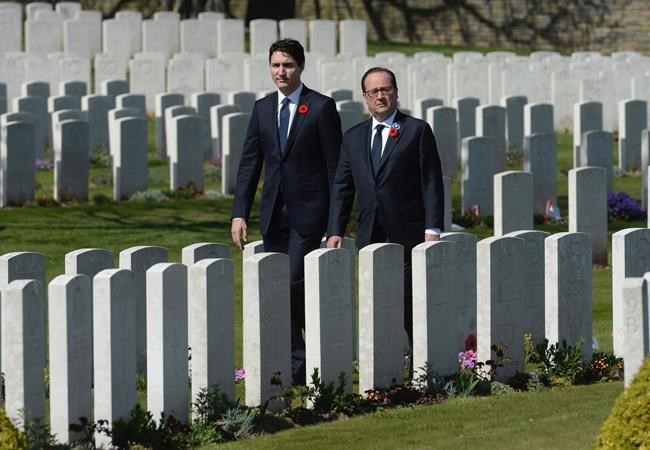The Battle of Vimy Ridge has become a Canadian myth, and citizens of modern Canada should be wary of how it influences their political present, says author Jamie Swift.
Swift, co-author of The Vimy Trap, argues the battle — touted as a triumphant, seminal, founding moment for Canada — has formed a simplistic, even dangerous ethos he and co-author Ian McKay call “Vimy-ism.”
“And we argue Vimy-ism is this toxic form of military-based, Canadian patriotism,” Swift said in a telephone interview. “It’s all: ‘Canadians do great things fighting together and winning.’ We argue the reality is much more complex and nuanced.”
Swift will be a keynote speaker at the Provincial Peace and Disarmament Summit, being held Saturday at the University of Victoria.
Swift said he and McKay, a historian at McMaster University in Hamilton, Ont., argue that the myth of Canadian frontier boys triumphing during the 1917 battle is not really accurate. Many men in the Canadian army were actually born in Britain and fighting for their motherland, not Canada.
But the myth is not just a disservice to historical accuracy, he said. It’s also dangerous to the politics of the present.
As proof, Swift points to comments made by Saskatchewan Premier Brad Wall in November 2015 as he spoke against Canada ending bombing missions in Syria and opposed accepting refugees from that country.
“As a citizen, I would rather they continue the air strikes,” Wall was quoted saying to reporters in Regina. “I would rather Canada continue the fight.
“That’s Canada’s history,” Wall said. “That’s our tradition.”
Swift argues the real history and tradition is one of sadness, loss and a determination that it never happen again.
Allied casualties, most of them Canadian, numbered 10,600 and 3,600 were killed. Many of those who returned were shattered men, he said, and little interested in any new myth of Canadian heroism.
But, somehow, the triumphant Vimy myth took hold — largely in the past 30 to 40 years, mostly after many First World War veterans were dead.
Swift said that when discussing an event such as Vimy Ridge, it is better to examine and re-examine, and interpret and re-interpret, what actually happened and the results of those events.
This process is not disrespectful, he said: It’s what historians and citizens who are truly interested in their nation’s formative moments do.
“It’s healthy when you are dealing with myth-building to have some contested terrain and some differences of opinion,” Swift said.
“History is always written in the face of evidence and new evidence.”
The Provincial Peace and Disarmament Summit and conference is co-sponsored by the UVic Centre for Global Studies and the Social Environmental Alliance. It will feature speakers, panels and workshops on a topics such as Canada’s foreign policy, nuclear disarmament, peace education and art.
The event, in room 118 of the David Strong Building at UVic, starts at 10 a.m. It is open and free to the public. For more information, go to vipdn.org.



